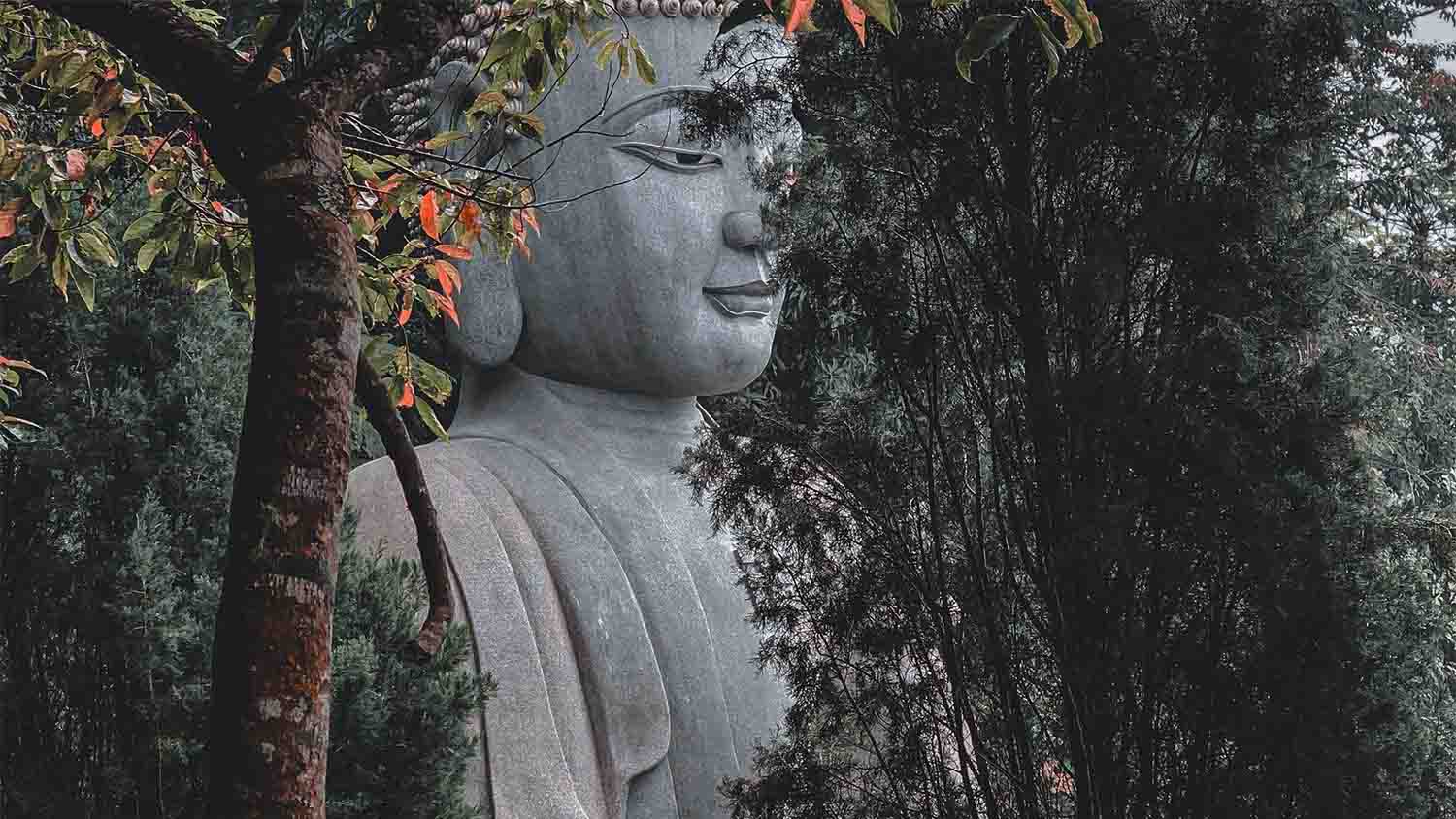Reading time: 4 minutes
What I’m about to write – as a Buddhist priest – is going to shock you. So let’s get it over with. Here it is, the bitter truth: I’m not a fan of Earth Week . . .
I’m saying this because I bet that if you’re honest, you dislike it, too. And the reason Earth Week bothers us is that it sounds too shrill. There’s something off-key when we see celebratory pictures of owls in classrooms with fluorescent lights, or mounds of recycled plastics, or heaps of clothes on fold-up, metal clothing-swap tables next to cinder block walls.
I can’t argue with the good sense of Earth Day suggestions like, “turn down the heat” or “identify things in your community that you can do something about” or “plant a tree.” But there is something about these suggestions that makes me feel as though I’ve been exposed to all of the radiation that exploded from Chernobyl.
These do-gooder jingles are cute. And I do believe that all of us need to take actions to improve the state of our environment. But what bothers me is that the thinking around these things is too small. What good does it do, after all, to plant a tree and then fly across the country to visit our grandparents?
Indeed, if we look at all of these small, isolated acts of good, each is typically born of such an unconsidered, reflexive, jump-on-the-band-wagon mindset, and so full of contradictions, that we probably don’t notice when the same person who recycles rides their bright red bicycle — with petroleum-based tires — through a man-made park in the midst of a city whose existence requires the consumption of extraordinary quantities of energy—taken from people and other forms of life who, therefore, have less.
To be clear: this doesn’t mean that I don’t care about the whales whose bellies are full of plastic. Or the forests lost to parking lots. Or the birdlife strangled by oil spills. What it does mean is that I recognize that I am part of the problem of human greed that’s at the root of environmental destruction. And I don’t think that there is any way I can live in the City of New York and pretend that anything that I do can make amends for that – not really. I confess to being the sinner that I am.
My shortcoming doesn’t mean, however, that I’m not doing anything about it. What I’ve decided to do in repentance is build a temple in the woods for five to ten people to study living life on a 40-acre plot of land with a natural spring and 50 species of tree, about a thirty-five-minute drive from Asheville, North Carolina. And, of course, I hope that some of you will join me here, before we reach capacity.
A temple is a place to use truth, a space set aside for the purpose of spiritual practice, where we polish our power to help others solve the fundamental matter of life and death.
To live temple life is to live the life of life giving back to life. But living such a life is hard to do in the social world, where our time and attention are fragmented, diluted with trivia, overwhelmed by busyness, social obligations, hard choices we can’t escape, and endless noise.
This is why it’s important to have a physical place to do the activity of truth— an environment to protect the possibility of living, a zone to preserve what the famous Buddhist Master Linji (d. 866 C.E.), who planted pine trees among pine trees deep in the mountains of ninth-century China, called the Genuine View—what we might call, the genuine way of Nature.
As modern people, I’d say we’re pretty much doomed. Not many of us are planting pine trees deep in the mountains where there are already pine trees, much less understanding the meaning of such an act.
The best we can do, I think, is to die with an understanding of life. If more of us took this view seriously, perhaps there might be hope. But isn’t it true – that we resist this endeavor to understand life in a serious way, even now? Isn’t there always something more important to do—a bill to pay. A deal to make.
If the earth suffers from greed, what, then, is the mind of greed? Or to put it in a more positive light, more creatively – what is the mind of charity? And what would it look like in terms of our health and happiness to live steadily contemplating the true nature of charity, the Genuine View— a contemplation that happens to be, at least according to Buddhism—and probably all great religions—one of the great ways—and at the very heart of—universal wisdom itself.






